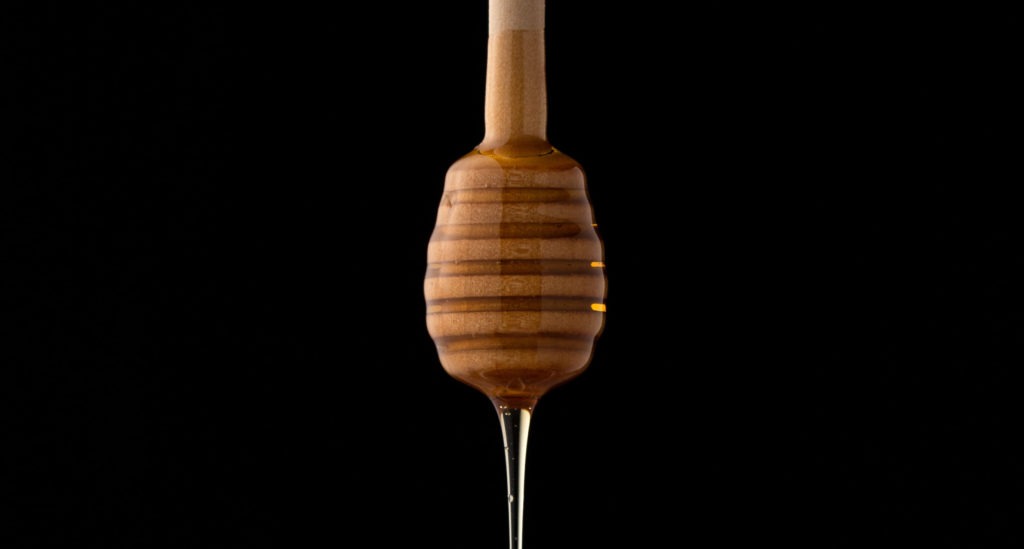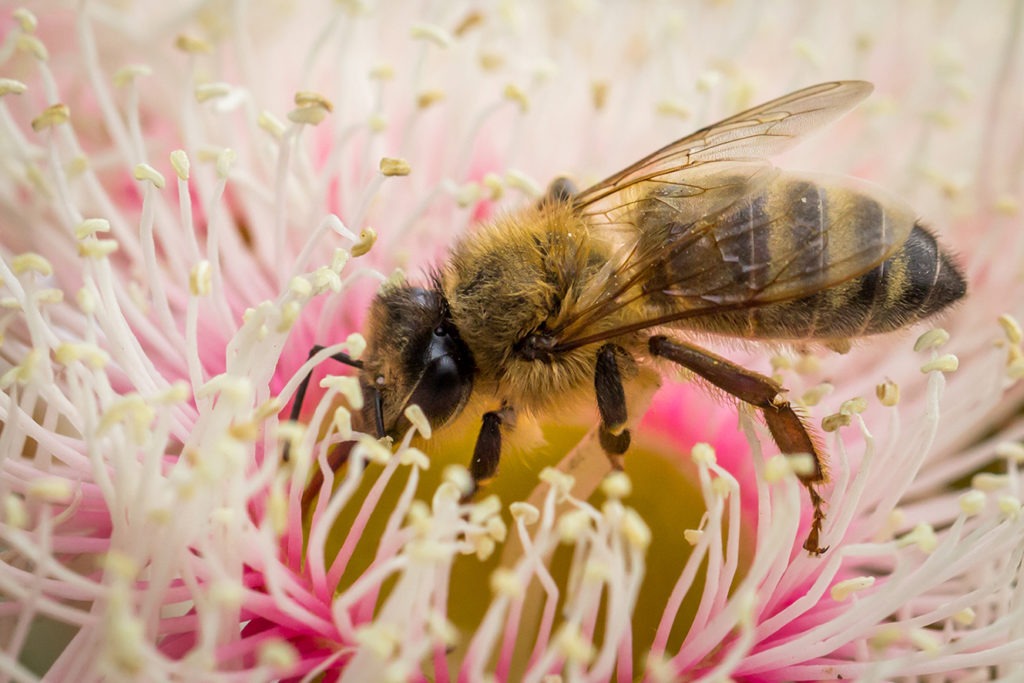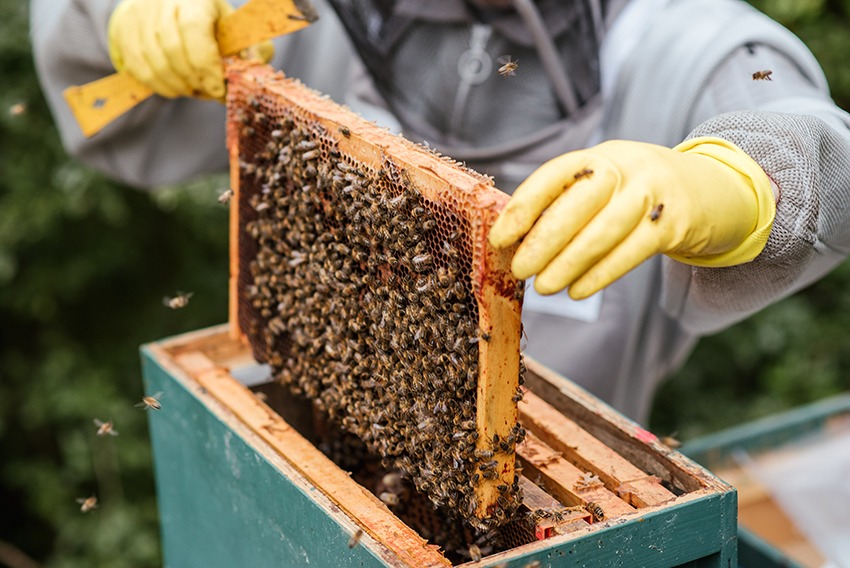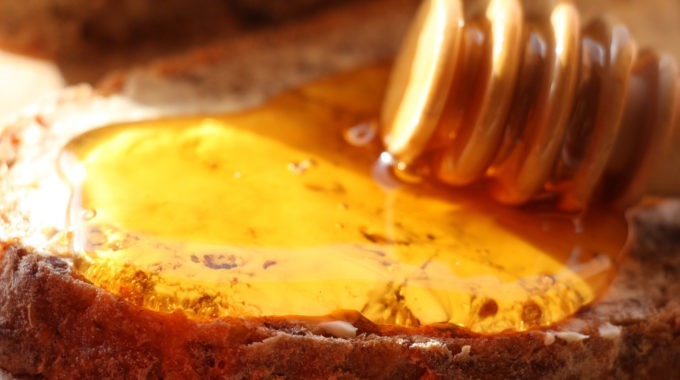Honey: from pantry staple to health food
The traditional use of honey as medicine dates back thousands of years. From Indigenous Australians and Ancient Egyptians and Romans to the Russian army in WWI, honey has been used to treat wounds, bacterial infections and intestinal diseases. However, its place in modern medicine has been limited due to a lack of scientific evidence to support its use. Now research led by the University of Technology Sydney (UTS) and funded by AgriFutures Honey Bee & Pollination Program aims to provide the evidence required by modern medicine to reposition honey from a pantry staple to a health food. Specifically, as a prebiotic to promote good gut health and to help combat gut-related disease.

Honey as a health food
Dr Nural Cokcetin, Research Fellow at UTS, in collaboration with gastroenterologists and clinical researchers at the Microbiome Research Centre at St George Hospital in Sydney, is exploring the role of honey as a prebiotic food that can promote digestive health.
“We know that honey has been used as a digestive remedy for centuries,” Dr Cokcetin says. “But why is that? Our research seeks to understand the science behind this. Particularly how honey changes microbial populations, immune response and inflammation in the gut.”
Our diet affects the balance of our gut, and in turn, our gut microbiome affects so much of our health. An unhealthy gut with an imbalance of gut microbes has been linked to numerous health problems, including colon cancer, irritable bowel syndrome, obesity, allergies, asthma, heart conditions and even mental health issues.
Dr Cokcetin says this research shows how just a small amount of honey can affect not only the balance of bacteria living in our gut; it can also be beneficial in preventing the onset and progression of gut-related diseases. It appears that when gut bacteria are “feeding” on honey, they’re producing compounds that have a protective effect.
“What we’re finding is that by promoting a healthy gut, we can build a much stronger immune system and increase our resilience to disease,” Dr Cokcetin says. “Just 20 grams of honey a day can boost the ‘good’ bacteria in our gut that help protect against diseases.”

Honey as a super drug
But the benefits of honey extend beyond maintaining the balance of gut microbes. The research team is also using an artificial gut system that simulates gut-related diseases and infections. The aim is to see how honey works against bacteria like Salmonella and E. coli.
“One of the most exciting findings for us has been the reduction in numbers of a group of bacteria in the gut called clostridioides following treatment with honey,” Dr Cokcetin says.
“These bacteria can cause some really nasty infections, specifically Clostridium difficile. This can quickly progress to life-threatening inflammation of the bowel.”
Currently, there are no effective treatments for Clostridium difficile, and recurrence rates are high. There is hope that honey may offer a cheap, safe and accessible preventative measure or treatment for a major global health issue.

The buzz on eucalypt honey
Highly publicised manuka honey is popular for its antibacterial activity and topical applications. However, preliminary studies are showing that honey derived from Australian eucalyptus is more potent than manuka as a prebiotic.
“Our project has been specifically looking at Australian eucalypt yellow box and ironbark honey,” Dr Cokcetin says. “While there doesn’t seem to be a particular type of eucalypt honey that shows higher prebiotic activity than others, our initial studies showed that, compared to manuka and canola honey, eucalypts in general had better prebiotic activity.”

Sweet opportunities for honey producers
Annelies McGaw, Research Manager of the Honey Bee & Pollination Program, says these findings offer Australian beekeepers the chance to create a premium product and market.
“This new research provides robust scientific evidence that supports honey as a health food,” she says. “It has the potential to create new opportunities for Australian honey producers. In turn, this will help to increase the value of eucalypt-derived table honeys.”
Dr Cokcetin suggests the best way for consumers to take advantage of the prebiotic benefits of honey is to keep a few different Australian honeys in the cupboard.
“Choose honeys that you like the taste of, making sure they’re 100% Australian, of course,” she says. “Enjoy a tablespoon a day on toast, in your tea or on its own to see the effects.”
This article was originally published by AgriFutures Australia and has been edited for style and length. To read the article in full, click here. For more about the AgriFutures Honey Bee & Pollination Program visit agrifutures.com.au/honey-bee-pollination









